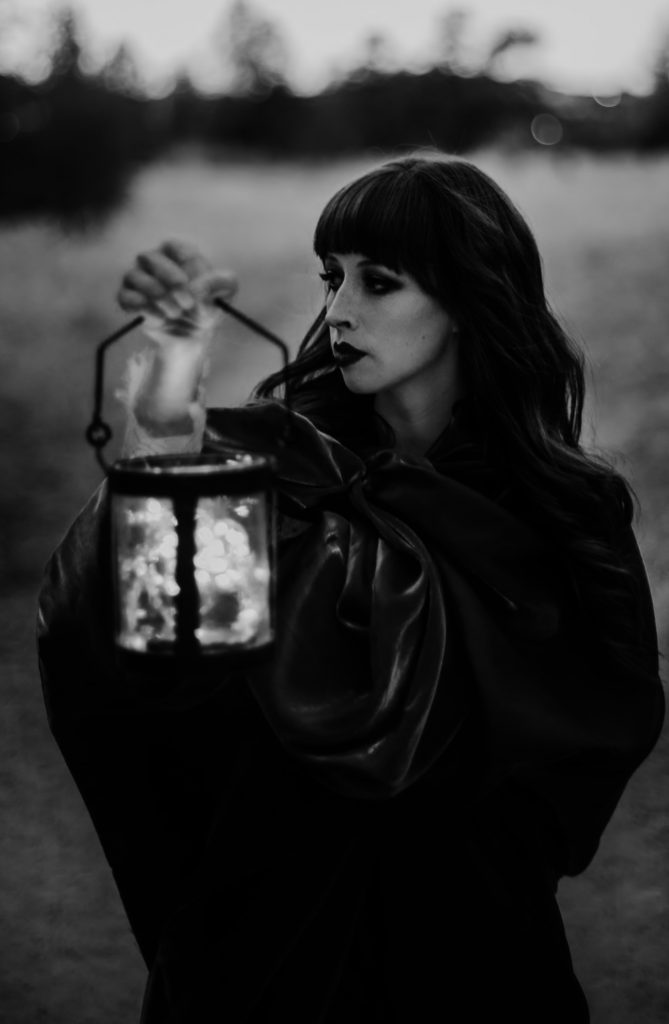 This is a tale told in spluttering flames and the chink of glass against twigs . . .
This is a tale told in spluttering flames and the chink of glass against twigs . . .
Winds circled the Chapel-in-the-Sands and threw handfuls of grit at the old windows. Listeners came muffled and coated against the cold. The hardy few of them drew close to the potbellied stove, eager for warmth and light. One lad tugged at a haversack hanging on a wooden peg. He lifted his face to the pilgrim with a hopeful look.
‘Do you have a spooky tale for us in your bag of remembered things?’
‘I might,’ she said. ‘If no-one else minds.’
Heads nodded. Eerie was acceptable. The boy grinned. The pilgrim blew out the candles in the jam jars on the windowledges. This is the tale she told to that dim and hushed room:
‘Hang out lanterns,’ our father said as the dark came, ‘that she may find her way home.’
We obeyed, not wishing to close off any path that might bring her back. We gathered pea sticks and hazel rods, old crooks and clothes props and stuck them in the hard and blackened earth. We sought out yews and pines, any trees not torn down. We adorned all those with strong branches to bear lanterns. We took string and jamjars, the odds-and-ends of candle stubs and made more lights. We hoped she would come home before the small and fluttering flames died.
They made a firefly road up the mountainside: faint, swaying in the valley-funnelled breeze, interrupted by more downpours.
Small spots of light glistened on slipped stacks of slates. The radiance turned them into scales from a leviathan heaved up on the fells to die. Men had scrabbled at that hard and tilted skin. The slither and rumble of further falls brought our mother to screaming. Our father gave his last daylight order.
‘Leave it be! Let her find her own way. One more of your diggings and the whole gorge will slew down and be the killing of us all.’
And so we hung the lanterns out night after night. Sunday after Sunday. New moon to full moon. We became that lantern family at the head of the valley. A Strange Custom, the local papers called it. Never bothered to ask us why, not speaking our language. They made engravings of the firefly road. We kept an etching given to us by the artist. Put it in her room, wrapped up for a welcome home gift, one of stacks.
The slates did not shift again. The quarry re-opened, of course. The minister asked if Father and Mother if they wanted to reserve a quiet little plot in the far corner of the burying ground.
‘We won’t be needing that for a good long while, but you can keep a space for us. We can’t be leaving the valley till she comes home.’
Nothing special marked the night she returned to us. Dark enough for the lanterns to be seen all the way up the ravine in a long constellation. Damp enough for the heavy stacks of slate to gleam as they had on the first night of loss. Breezy enough for the branches to sway and make the glasses chink.
Grey she was, skin pale as ivy roots that tunnel beneath flagstones.Her nightdress too short for her and grubby with slate dust. Dirt powdered her hair, glued on with mist. Washed-down peat pooled in her unlistening ears.
Her eyes reflected the lantern flames and nothing else. We were uninteresting to her. She stumbled from lantern to lantern, wondering at each glowing wick as if it were a captured moth or gorse blooming in ice. Delight stretched her eyelashes wide apart, made her pallid lips open – but no sounds came. Only the cold breath of stone exhaling after rain.
We lead her home, steered her like a heifer with our arms spread wide and considered movements. Her bedroom accepted her, offered up its gifts to listless fingers. She stared out of the window to the hungry hills till the first bird sang. Then she lay herself upon the bed, still as an effigy.
Died.
When our parents used their paid-for plot, we took in the lanterns.
The pilgrim took a spill and relit the candles in their jam jars. She gave one to the silent lad.
*************************************************************************************************
Header image by Lucas Sankey on Unsplash altered by K. M. Lockwood
